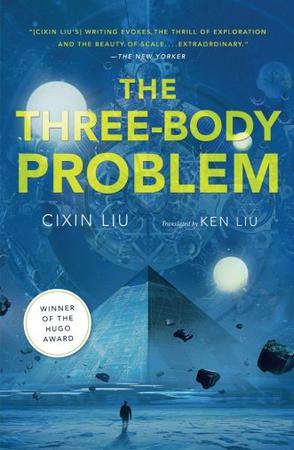LÜ CHAO: Science fiction should seek sustainable development

Cover of the book The Three-Body Problem
In 2015, science fiction author Liu Cixin became the first Asian writer to win Best Novel at the Hugo Awards for The Three-Body Problem, the first installment of his Three-Body trilogy. Liu’s breakthrough success in the genre is an inspiration to other Chinese authors and the scientific community that paves the way for more domestic science fiction novels.
In the Internet age, science fiction spreads rapidly through social media. For instance, the Chinese Science Fiction Galaxy Award has been covered by traditional media like the Xinhua News Agency and The Wall Street Journal as well as Internet media, like Sina and blogs.
Another reason for the boom of science fiction is that it has become a consumer culture. Science fiction books and films are becoming a stylish form of recreational consumption. China has become a “consumer society” in which literary and artistic products are increasingly shaped by consumer behaviors. The term was proposed by Jean Baudrillard, one of the most fascinating thinkers on the French intellectual scene. Scientific concepts, such as wormholes, faster-than-light travel and parallel universes, are increasingly captivating the public imagination, creating a greater demand for science fiction.
Though science fiction has made remarkable progress in China, it remains a niche market. The magazine New Science Fiction announced it would shut down in 2014, leaving Science Fiction World as China’s only remaining traditional outlet for the genre. Though it was critically acclaimed, The Three-Body Problem only managed to sell 500,000 volumes and its success is eclipsed by the sales of works in more popular genres, such as kung fu, romance and young adult.
As the market for science fiction expands, publishers, TV and film producers, and even property developers will realize the genre’s profitability. With more and more projects underway, the whole market seems prosperous. However, in rushing to capitalize on the popularity of science fiction as a form of entertainment, authors and producers run the risk of neglecting its cognitive and aesthetic functions. We need to explore methods to assure the genre’s sustainable development.
First, the industry should shift the focus from short-term profits to cultivate talent and enhance the capacity to create quality works. The blind pursuit of quick success and instant returns will result in a large quantity of crudely made works, which will sap the vitality of the industry. A healthy industry needs joint efforts and long-term plans, so that more excellent works full of ideas, imagination and rich literary themes can be created.
Second, a sound industry chain is needed to integrate production, transmission, consumption and reproduction to improve the mechanism of the industry. The whole industry comprises literature, films and television, animation, games, toys, theme parks and other areas. These business formats all exist in China, but they are not systematically connected. The domestic science fiction film industry is rather weak, with the market dominated by Hollywood films. That’s because the industry involves capital, technology, concepts and other links as well as coordination among directors, actors, technicians, art designers and other departments. It is fair to say that development in each industry requires the improvement of the whole industry chain and associated areas.
Lü Chao is from Tianjin Normal University.
